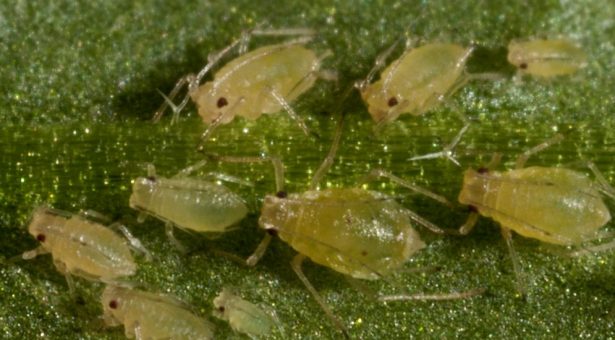Animal research

Our scientists, staff and students study plants and microbes.
This research aims to understand more about the fundamental processes inside these organisms including how they grow, reproduce, produce useful compounds, and how their genes control these processes. We also work to apply this knowledge for the benefit of humanity, and to communicate our research to the public.
In our research we use insects such as aphids, ants and leafhoppers. We keep these insects in our purpose built insectary and they are cared for by a team of trained entomologists. We do not use mammals, fish or birds, nor do we keep them on site.
We use insects in our research into plants and microbes to understand how plants respond to insects and how we can protect crops from pests. We believe the use of insects is necessary in our research, because as of yet, there is no suitable alternative for studying the way insects interact with plants and microbes.
Research involving animals in partnership with other institutes
The John Innes Centre works to further our understanding of plants and microbes to advance global sustainability and healthcare.
We work towards providing insights to reduce the environmental impact of food production and to develop new healthy foods, including plant based diets, medicines, treatments and vaccines. Our research starts life in a laboratory and often ends up in farmers’ fields, on your plate or in a medicine.
As the research begins to make its way out of the laboratory here in Norwich, we often work with partners with complementary expertise to ensure that our breakthroughs are transformed for the benefit of society. In some of our research collaborations we work with researchers at other organisations who use animals in research.
One example of this is our research to develop tomatoes enriched with high levels of anthocyanins — the antioxidants found in blueberries and blackberries which gives them their purple pigment. Anthocyanins are known to be a useful compound in the prevention of cancer in humans. This research lead to a collaboration to further this development, and working with partners at the European Institute of Oncology, in Milan, Italy, the anthocyanin enriched tomatoes were fed to cancer-prone mice, and it was found that the tomatoes extended their lifespan by an average of 30 per cent.
Where we do work with partners and collaborators who use animals, this is only done when there is clear potential for benefit from the research, when there is no alternative to using animals and following strict regulations.
Animal research can be carried out only when authorised by the Home Office, and animals can be used only if there is no appropriate alternative.
All research proposals are assessed to ensure that the research can’t be done without using animals and that there is evidence of the potential benefits of the research. All work must be carried out by highly trained staff and all institutions must have veterinary facilities.
